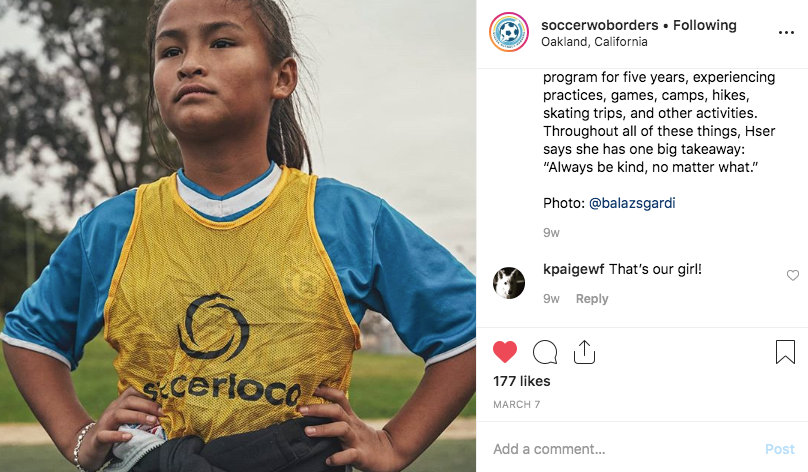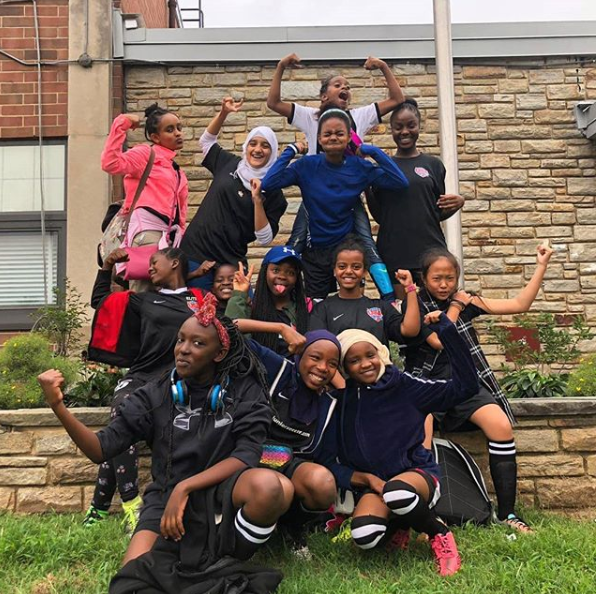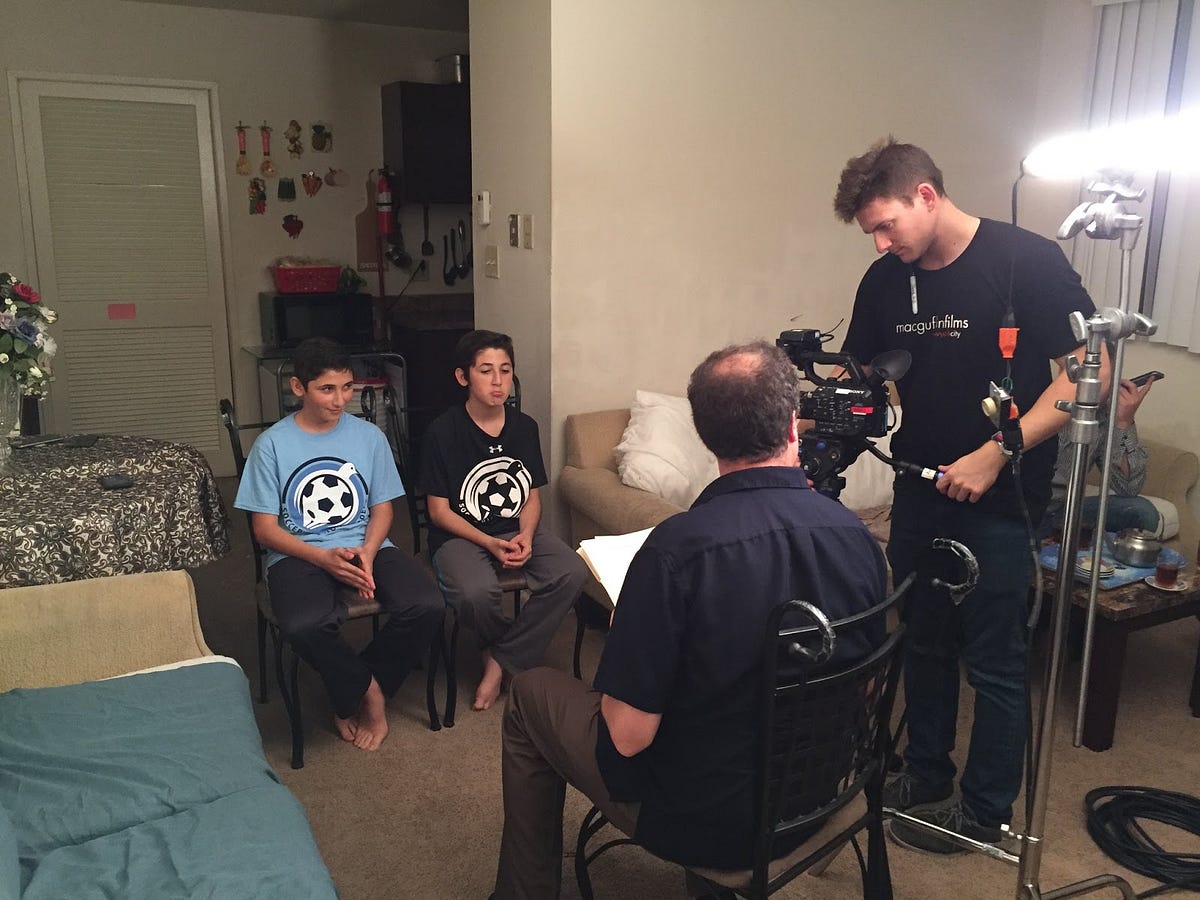Soccer is a Refuge
1 in just over 100 people on the planet have been or are being forcibly displaced, and half of those evacuating people are children. Refugees face a jarring journey that is filled with traumatic backgrounds and the arduous transition into a new country’s culture. This issue was the reason Soccer Without Borders (SWB) was created and is the primary population they serve. This GlobalSport Matters produced mini-documentary gives a small peek into the transformative work that SWB does across five chapters in the United States.
Photo of young a group of young girls in soccer uniforms, flexing their muscles, SWB Baltimore’s all-girls team. Photo via Soccer Without Borders’ Instagram (@soccerwithoutborders).
One of the main hurdles refugee populations face when moving to a new country is the language barrier. SWB’s practices are English language integrated so that while kids are learning soccer skills, they’re also picking up conversational English as well.
Photo of two young boys, Hassan and Abdulah, being interviewed by filmmakers for the GlobalSport Matters mini-documentary. | Photo via Soccer Without Borders Baltimore’s Facebook (@SWBBaltimore).
For twins Hassan and Abdulah Alkashto, SWB made a significantly positive impact on their lives as refugees from the Syrian war. “It means a lot of things for us. It helps us out with how to speak better English. It helps us out to do our homework. It’s like half my life.”

Photo of a young girl named Hser in a blue and yellow jersey who is a participant of the Soccer Without Borders program in Oakland. | Photo via Soccer Without Borders instagram (@soccerwoborders).
Soccer Without Borders meets their program recipients in an often alienated and fearful state, and provides an athletic outlet, camaraderie, academic tutoring, English-as-second-language training, and social advice. All of this together helps their recipients thrive in their transition.
“Over the last 10 years, regular participants have graduated from high school at a rate of 95 % in our veteran programs.”
Sport has the power to democratize even the most dichotomous situations, and thus this bouncing, rolling ball is the ice-breaker. It opens the door to a vastly different, but incredibly valuable sense of peace for children who have known very little of it in their short lives.
This story was originally published on globalsportmatters.com. You can watch the mini-documentary in full on the GlobalSport Matters YouTube Channel. To learn more about Soccer Without Borders, visit their website: https://www.soccerwithoutborders.org/.
The Global Sport Institute cares for the health and safety of all its readers. If you are having thoughts of hurting yourself or need someone to talk to, please take action now by calling 1-800-273-8255 or by visiting suicidepreventionlifeline.org. For other resources, visit the Mental Health Resources Guide.

